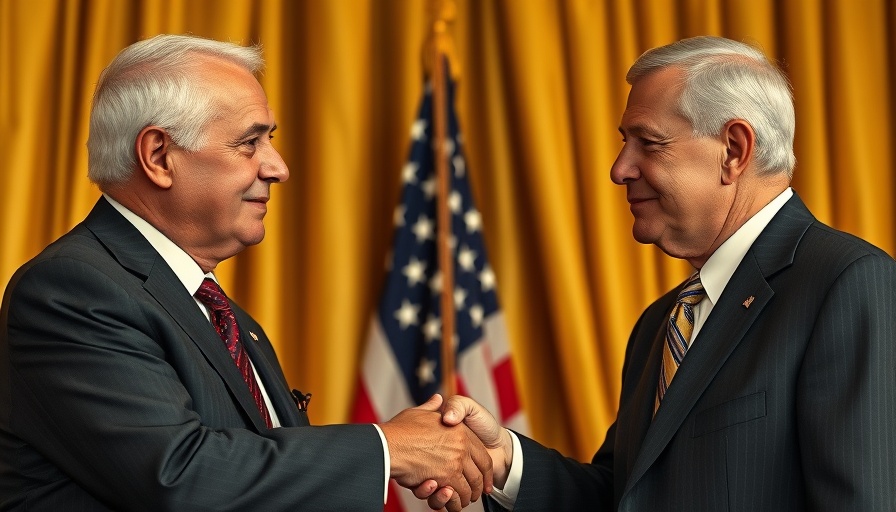
China's Concerns Over UK-US Trade Relations
The recent criticisms from China regarding the UK trade deal with the US underscore the growing tensions in global trade relations. As the UK seeks to strengthen ties with the US post-Brexit, China has voiced its discontent, arguing that such a move could potentially marginalize its economy. This reaction highlights China's sensitivity to the shifting landscape of international agreements and alliances, particularly those that could challenge its economic ambitions.
Understanding the Implications of Trade Agreements
Trade agreements, like the one between the UK and the US, are not merely about tariffs and quotas; they are also strategic instruments used to exert influence on global markets. Analysts suggest that the strengthening of US-UK ties could lead to a more united front against China in terms of trade practices. This has led to concerns among Chinese policymakers over their own competitiveness in industries critical to their national interests.
Historical Context: Trade Wars and Alliances
The current narrative echoes previous trade tensions seen between China and Western powers. Historical events such as the trade wars initiated by tariffs between the US and China illustrate how economic partnerships can pivot dramatically, affecting global supply chains and altering market conditions. As such, understanding these historical contexts allows us to see potential future outcomes, including retaliatory measures from China.
Future Predictions: Trade Relations Evolving
Looking ahead, analysts are predicting heightened volatility in trade relations as countries navigate these new alliances. The UK-US trade deal may serve as a catalyst for broader shifts in international partnerships, making it crucial for businesses—especially Silicon Valley startups and Bay Area entrepreneurs—to stay informed about these developments. As trade regulations evolve, opportunities and challenges will arise that could reshape business strategies.
Economic Impact: What This Means for Businesses
For businesses in the Bay Area, the implications of the UK-US trade deal could be far-reaching. With a robust startup ecosystem and a focus on venture capital funding, understanding international trade dynamics is vital. Companies may need to assess their supply chains and think strategically about how changes in trade policies could affect their operations and competitiveness. The tech industry, given its global nature, should prepare for potential disruptions that might arise from trade tensions.
The Role of Corporate Social Responsibility and Sustainability
As trade relationships evolve, so does the importance of corporate social responsibility (CSR) and sustainability in business practices. Industry leaders are increasingly aware that aligning business strategies with ethical standards can foster goodwill and mitigate risks associated with geopolitical tensions. Sustainable business practices may not only appeal to consumers but also serve as strategic advantages when navigating complex international regulatory environments.
Concluding Thoughts: Preparing for Change
The situation development between China, the UK, and the US showcases the intricate interplay of global trade relations. For businesses operating within these spheres, proactive engagement in strategic planning is essential. Embracing innovative solutions while remaining adaptable to new market conditions can help ensure long-term success in an ever-evolving economic landscape.
 Add Row
Add Row  Add
Add 



Write A Comment